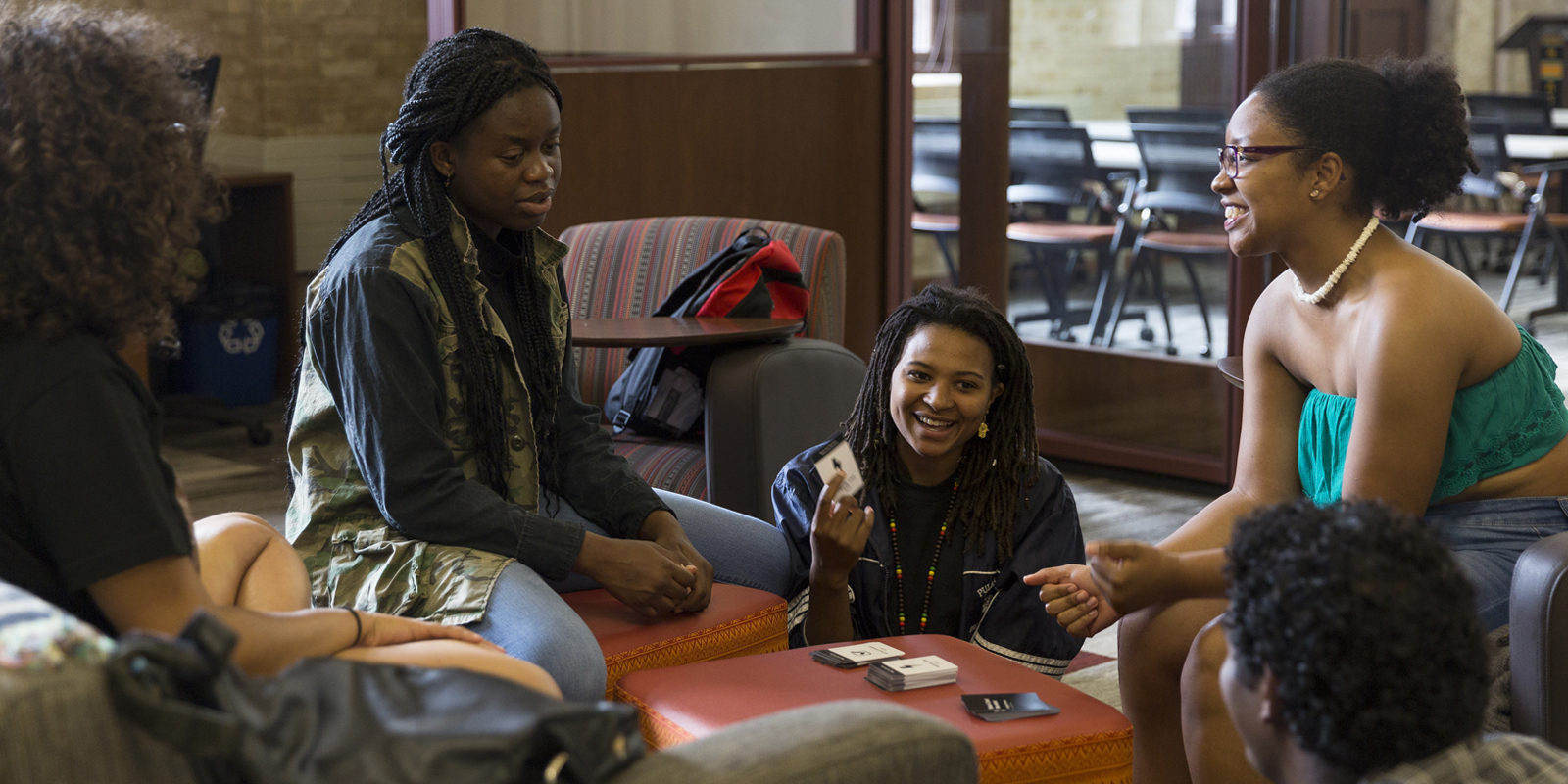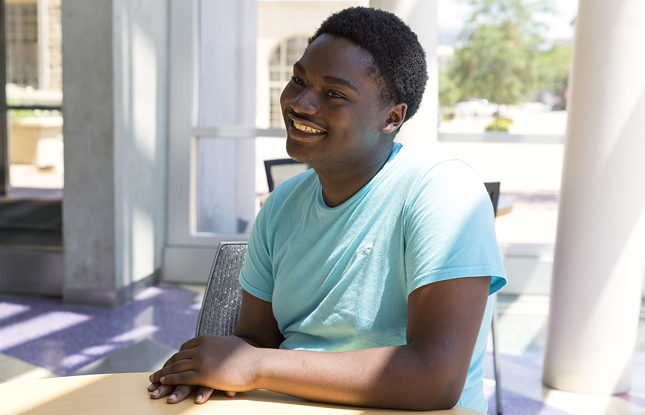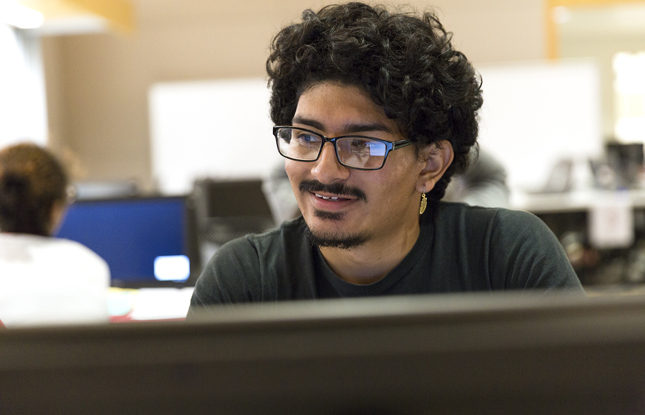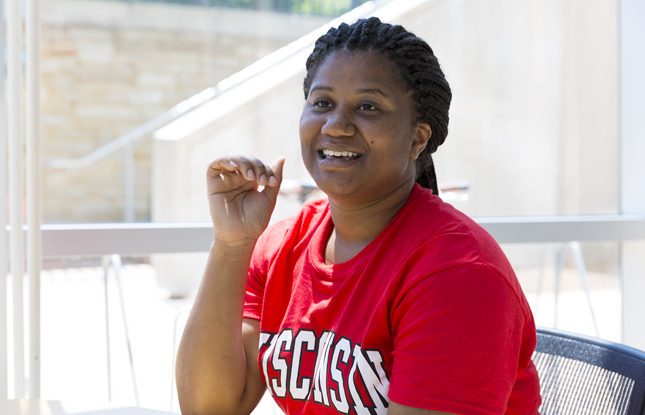The butterflies kicked in as Kendal Taffe watched his Facebook wall fill with friends’ ecstatic posts about acceptances to UW-Madison. Taffe, then a high school senior in Milwaukee, wondered if he’d be joining them.
“I was really nervous,” he says. “My hands were all cold and sweaty.” Nevertheless, he logged on to check his status: It was official. He was a Badger.
“I started screaming and yelling, and then my mom started screaming and yelling. My mom posted about it on Facebook even before I did!” he recalls with a laugh.
“But you see,” he says, turning serious, “I always doubted myself.”
He’s not alone. The university can be an intimidating place for many of the nearly 5,000 freshmen who arrive on campus each fall. And students who are the first in their families to attend college, or who come from backgrounds historically underrepresented in higher education, may even perceive it as unwelcoming.
The Summer Collegiate Experience, a program in the College of Letters & Science, is working hard to change that. The program rolls out a welcome mat to incoming students, offering them a six-week preview into college life, complete with bunking in dorms, taking classes and forming important first friendships.
The program has grown from serving about 30 students back in the 1980s to helping more than 150 navigate the university this summer. Ninety percent of this year’s cohort are students of color, and the majority are the first in their families to attend college, says Nick Ewoldt, director of SCE and an assistant dean in the College of Letters & Science.
Roughly 100 of SCE students are participants in Pre-College Enrichment Opportunity Program for Learning Excellence, or PEOPLE, program, which prepares and creates a pipeline for pipeline for students of color and low-income students in Wisconsin to attend UW-Madison. Students from the Center for Academic Excellence, which provides support for historically underrepresented students on campus, and First Wave, a learning community focused on spoken word and hip-hop culture, round out the group.
José Rodriguez came to SCE in mid-June already familiar with campus, as he’d visited many times through the PEOPLE program. But being here this summer, knowing he’s just weeks away from starting his full college career, feels different, he says, somehow more real.
“For me, it’s a combination of nervous and excited, of being dropped into this new setting and starting over,” says Rodriguez, who grew up in Madison.
As soon as students arrive at SCE, they hit the ground running academically. Everyone takes Critical Approaches to Thinking and Writing, in which instructor Larry Edgerton has them reading Shakespeare and poetry, watching French films, listening to symphony music — and then reflecting on and writing about those experiences. It’s a tough class, and it shows how high the bar is set at UW-Madison.
“Larry pushes students to the edge,” Ewoldt says. “Not over the edge, but close enough to really prepare them for university. But they can do it.”
Edgerton’s class and an elective serve as an introduction to the College of Letters & Science. So does meeting with an advisor, which students do two or three times before choosing classes for the fall semester. They also have access to peer learning and study groups and are exposed to additional resources and services they can utilize in semesters ahead.
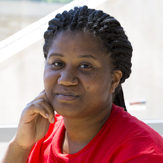
I feel like I’m ready to be here on this campus ... like my contribution, big or small, is going to be here.
But SCE isn’t just about racking up course credits. Socializing is also a big priority. Students play sand volleyball outside their residence hall, have board game nights and bonfires at Picnic Point and take field trips — this summer, they saw a play at American Players Theatre in Spring Green and hiked at Devil’s Lake State Park in Baraboo.
“SCE is about building a network,” Ewoldt says. “It really does make a difference in how connected to UW students feel.”
By the time the program wraps up in late July, students feel acclimated to the university and, perhaps most importantly, sure of their place here.
For Adrianna Griffin-Phipps, SCE has been all about gaining confidence. The student from Milwaukee has used the time not only to choose classes and familiarize herself with resources, but also to think about what her presence could mean at UW-Madison.
“I feel like I’m ready to be here on this campus,” she says. “I feel like my contribution, big or small, is going to be here.”
